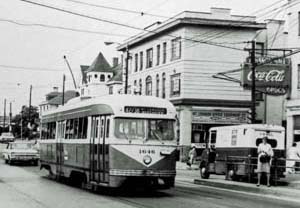| James Sayre Memorial |
| 1940s and 1950s | ||
 |
James was born in Patterson, New Jersey on July 21, 1942. He grew up in a highly educated, politically progressive family in Ridgewood, New Jersey, Castle Shannon, Pennsylvania, and Mt. Lebanon, Pennsylvania, where he graduated from high school, turned 18, and left the family home at the dawn of the 1960s. He and his two younger siblings were all talented and independent, and they all went on to live unique and inspirational lives, while respecting and caring about each other. Read James's account of growing up in the 1940s and 1950s -> |
|
| 1960s | ||
 |
James began the 1960s studying physics at Carnegie Institute of Technology in Pittsburg, then transferred to the University of Michigan, Ann Arbor, where he obtained his Bachelor of Science in metallurgical engineering in 1964. His young adulthood was shaped by the emerging environmental, civil rights, and anti-war movements of the era. His love of music had begun early, as he set out to explore the more obscure corners of popular music. After finishing college, he moved west, enrolling in graduate study at Stanford University in California's Bay Area, but after a year, he dropped out to help organize the school's anti-war and environmental efforts. Read James's account of the protest movements of the 1960s -> |
|
| 1970s | ||
 |
During the 1970s, James developed the counterculture lifestyle that he would pursue for the rest of his life: leading communal group houses, avoiding mainstream jobs, dumpster diving and scavenging discarded resources, trading at yard sales, and harrassing the Establishment through pranking, postering, community organizing, and "letters to the editor" of local newspapers. He gave the name "Ecology Action" to his grass-roots rabble-rousing efforts. Toward the end of the decade, James was the leader of a rented group house in the affluent suburb of Menlo Park, California. He'd always been ahead of the curve in his musical tastes, and he was the first of his crowd to discover punk music - from the Modern Lovers and Ramones to the Sex Pistols, all of which he played constantly on the turntable in his room. In late 1979 the house's owner sought a variance from the city council to demolish it and build a new duplex on the lot, which was not zoned for a duplex. James decided to fight the variance by running for the City Council. |
|
| 1970s Gallery |











 |
|
| 1980s | ||
 |
After a colorful, energetic campaign, James lost the Menlo Park election, he and his roommates were evicted, and the group house was demolished, but he went on to advocate for tenants' rights in other group houses in California and Oregon during the early 1980s. In the aftermath of punk, styles had changed - the hippie look was decidedly uncool. James cut his hair, and became more restless. He travelled extensively, to Australia, Iceland, Alaska, and many other destinations, meanwhile temporarily relocating to Oregon and Virginia, but always checking in regularly to his base in the Bay Area, where his entire family had settled and most of his friends were located. He collected folk and ethnic music wherever he went, dubbing it from vinyl to cassette for his friends back home. |
|
| 1980s Gallery |           |
|
| 1990s | ||
 |
In the 1990s, James lost his younger sister to cancer, and his younger brother to suicide. He rented a one-bedroom apartment in the suburbs south of San Francisco, began to take on more temporary clerical work, and eventually, at the urging of a girlfriend, wrote and self-published North American Bird Folknames and Names, which was favorably reviewed and purchased as a reference by libraries across the country. Inspired by that success, and by his own experiences of self-medicating with herbs, James went to work on a much more ambitious book. |
|
| 2000s | ||
 |
James published Ancient Herbs and Modern Herbs in 2001, but he was unable to market it successfully, and few copies were sold. His father developed Alzheimers and had to be moved to a nursing home, where he passed away, followed in a few years by James's mother. James inherited the family cars, and moved into his brother's Craftsman bungalow in the fashionable Rockridge district of Oakland. He was the last survivor of his family and he'd gradually lost touch with most of his old friends. He began cultivating a riot of vegetation - including several examples of his beloved Eucalyptus from Australia - that would engulf his house, alienate his neighbors, and attract raids by the city's "urban blight patrol." James's neighbors were proud of their neat, well-maintained properties. But James saw his home as a symbol of resistance to consumer culture. Hidden inside his urban jungle, as his roof began to leak and his plumbing began to fail, he simply let things fall apart and adapted his lifestyle to a form of urban camping. Then he contracted diabetes, and stopped allowing his remaining friends to visit. |
|
| 2010s | ||
 |
James remained tenuously engaged with society at the beginning of his last decade by fielding calls and sending letters to the editors of local papers, from the Berkeley Daily Planet to the San Francisco Chronicle. But in 2011 he stopped responding to calls and emails, and after 2012 he stopped sending letters. The world had changed dramatically during his long life. Now, as a conservationist in a device-addicted society, an anti-capitalist in a society that idolized billionaires, and a pacifist and anti-imperialist in a society that feared Muslims and dark-skinned immigrants from the Global South, James seemed to be crying alone in the wilderness. We know little about his final years, because he finally withdrew from a world that seemed to have no place for him and his contrarian messages. |